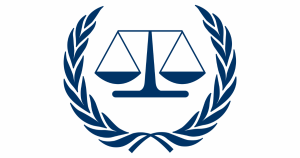After the National Constituent Assembly released a draft of the Tunisian Constitution on 1 June 2013, it created a Consensus Commission to reach broad agreement on the most contentious issues in the draft. Since then, the Commission has worked to find agreement on a number of articles and recently submitted to the National Assembly a revised text, on which the National Assembly started voting last Friday article by article. On Tuesday 14 January 2014, which marks the third anniversary of the overthrow of dictator Zine El Abidine Ben Ali in the popular revolt that sparked the Arab Spring, the National Assembly is expected to adopt the Constitution in its entirety.
Statement by Alison Smith, Legal Counsel of No Peace Without Justice:
“No Peace Without Justice (NPWJ) and the Nonviolent Radical Party, Transnational and Transparty (NRPTT) welcome the enhancements to the draft Tunisian Constitution and recognise that important improvements have been achieved. However, a number of provisions still raise concerns for the protection of human rights. In particular, women’s rights and gender equality have to be enhanced and non-discriminatory clauses included in all relevant article of the Constitution. Article 21, which still allows death penalty, has to maintain consistency with the “de-facto moratorium” practiced in Tunisia since the ’90s. In this, we recall Tunisia’s vote on 20 December 2012 in favour of UN General Assembly Resolution 67/176 “Moratorium on the use of the death penalty”, finally banning de jure the death penalty from Tunisia. Finally, the provisions on the judiciary should ensure that it is fully independent. The Constitutional Court should have immediate competence over the Constitution following its adoption without a transitional period, which would delay its role as guarantor of the Constitution and of the protection and promotion of human rights and the rule of law.
“This is an historical moment for Tunisia, which for the first time has the opportunity to adopt a Constitution reflecting the complexity of Tunisian society. No efforts should be spared to achieve the best possible result for upholding the human rights of the people of Tunisia. Once again, Tunisia can be at the forefront of the democratic transition of the Arab region and be an example for neighboring countries, this time on constitutional processes. By upholding and strengthening its constitutional provisions relating to human rights and the rule of law, Tunisia can renew the revolution of January 2011. To do so, the National Assembly has to establish a schedule to ensure the swift adoption of the Constitution that allows full negotiation of its most critical provisions.
“NPWJ and the NRPTT urge the National Assembly to continue discussing provisions relating to human rights and to strengthen them further, to ensure the ideals that sparked the revolution continue to live on as Tunisia rebuilds her future.”
NPWJ in Tunisia
NPWJ worked in partnership with Al-Kawakibi Democracy Transition Centre (KADEM) on the Tunisia transition since early 2011, in the framework of the project to Support the Democratic Transition in Tunisia through Transitional Justice. NPWJ and KADEM aimed at supporting civil society and other relevant actors to play the most effective role in ensuring that abuses are dealt with fairly, transparently and effectively as part of Tunisia’s overall democratic transition process. To this end, they provided information and spread the culture of transitional justice, including how to investigate past violations, as well as collected and analysed the expectations and perceptions of the public and victims towards transitional justice.
For more information please contact Greta Barbone on gbarbone@npwj.org and +39 06 68979262 or Nicola Giovannini on ngiovannini@npwj.org or +32 2 548-39 15.




